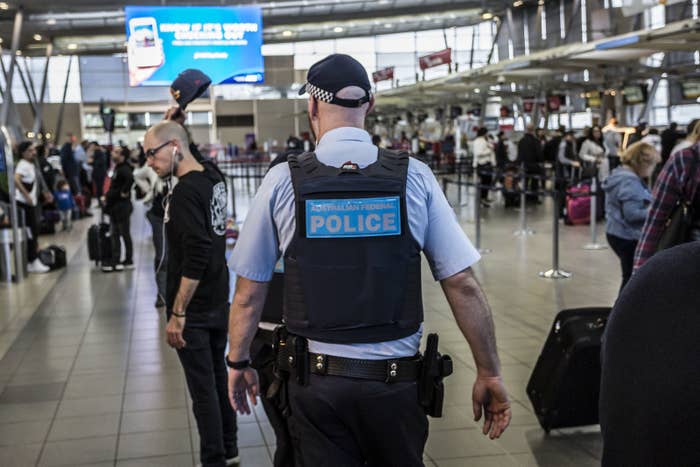
In March 2015 Weili Cui and her friend Bei Jiang entered a city branch of the National Australia Bank in Sydney. Cui was carrying $200,000 in cash, bundled into a black bag, given to her by two men she could only identify as "the fat man" and "the skinny man".
It was an unusual transaction, but one that might ordinarily have gone unnoticed.
Unfortunately for Cui, Australian Federal Police (AFP) officer Darren Burtenshaw, who has worked on a number of high profile proceeds of crime investigations – including the recent Plutus Australian Tax Office investigation – happened to be doing some personal banking at the same NAB at the same time.
He observed the women entering the bank, saw the cash, and questioned them. A short time later, he made the decision to seize the funds, determining they could be of suspicious origins.
The circumstances of Burtenshaw's unusual seizure of the cash are set out in a December 2017 NSW Supreme Court judgement, which ruled that Cui and her husband, Shushan Li, were unsuccessful in being excluded from a court ordered seizure of the funds. NSW Supreme Court justice Lucy McCallum wrote that the events at the bank were "inherently suspicious".
"The possession of so much cash alone calls for an explanation; the manner in which it was packaged and conveyed (in rubber bands and plastic bags) was also such as to raise an eyebrow," she wrote.
While the decision is not a final determination about the source or status of the cash, the case provides an insight into the methods allegedly used by some Chinese nationals to funnel funds into Australia, potentially in breach of anti-money laundering laws.
At the time, Cui gave an account to Burtenshaw and another officer, agent Blunden. She later told the Supreme Court in an affidavit she had been lying to the officers.
Initially, she said the cash was made up of two components: $60,000 that six family members and herself had brought to Australia from China. This was not declared on entry to the country, she said, because each person travelled with less than $10,000.
The remainder of the cash was repayment of a large debt, she said. She said she did not know the name of the debtor, because he only dealt with her husband.
When her husband arrived at the bank, he too was questioned by Burtenshaw and Blunden. He said the funds were a mixture of: $60,000 he and Cui brought into Australia; $40,000 from a debt repaid to him; and $110,000 brought into Australia for him by a friend from China. He said all of the funds had been stored at their home in Sydney.
But Cui and her husband, in their application to the court, substantially changed their story as to how they came to be in possession of the cash.
In her affidavit Cui said she had lied to Burtenshaw and Blunden, stating: "I was worried that the process of exchanging the money this way might be illegal, so I acted cautiously and did not tell the police the source of the $200,000 cash".
She also claimed the funds were part of a legitimate currency exchange. This particular exchange was organised, she said, through Junguo Wang – the husband of Bei Jiang, the woman with her at the NAB – who had introduced her to two men.
Cui could only describe these men as "the fat man" and "the skinny man", and knew nothing else about them. They later organised to meet the manager of the NAB branch to make the transaction, where officer Burtenshaw observed them.
Justice McCallum found there were "strong reasons to doubt" the currency exchange version of events put forward by the couple in their court application.
"I think it is equally possible that what Mr Li said in particular (as to all or most of the cash being money that had been brought into Australia from China by them or at their request) was a truthful admission from which, now that he understands its implications, he seeks to resile."
She wrote that the initial version of events given to the AFP were "inherently more plausible, and said that the claim now made that Li was then lying, "combined as it is with an implausible tale that is as self-serving as it is bizarre, must be viewed with a measure of circumspection".
It is unclear whether Li or Cui will appeal McCallum's decision. BuzzFeed News contacted their legal representatives, but they have not responded to requests for comment.
Contact Paul Farrell securely using the Signal messaging app on +61 457 262 172
